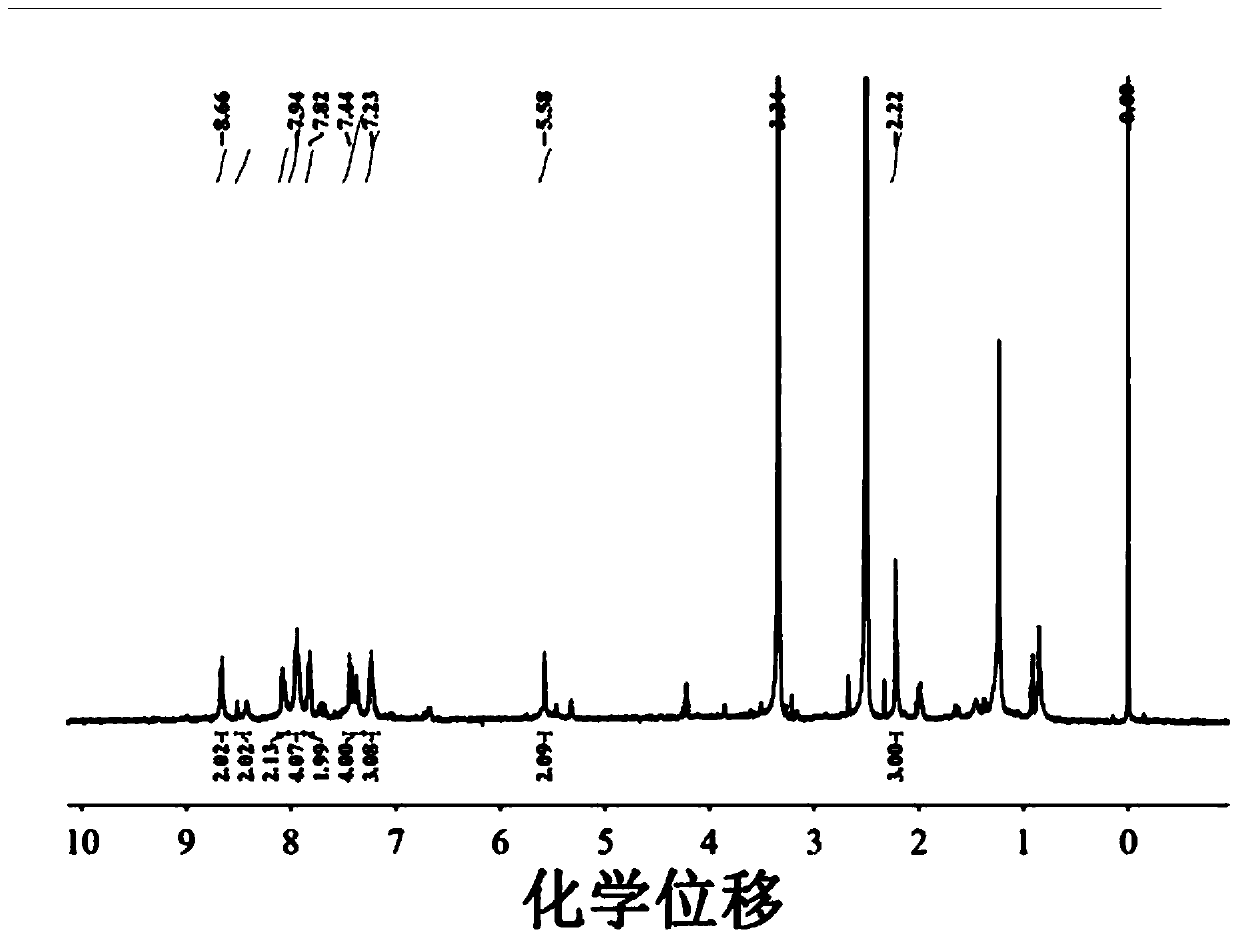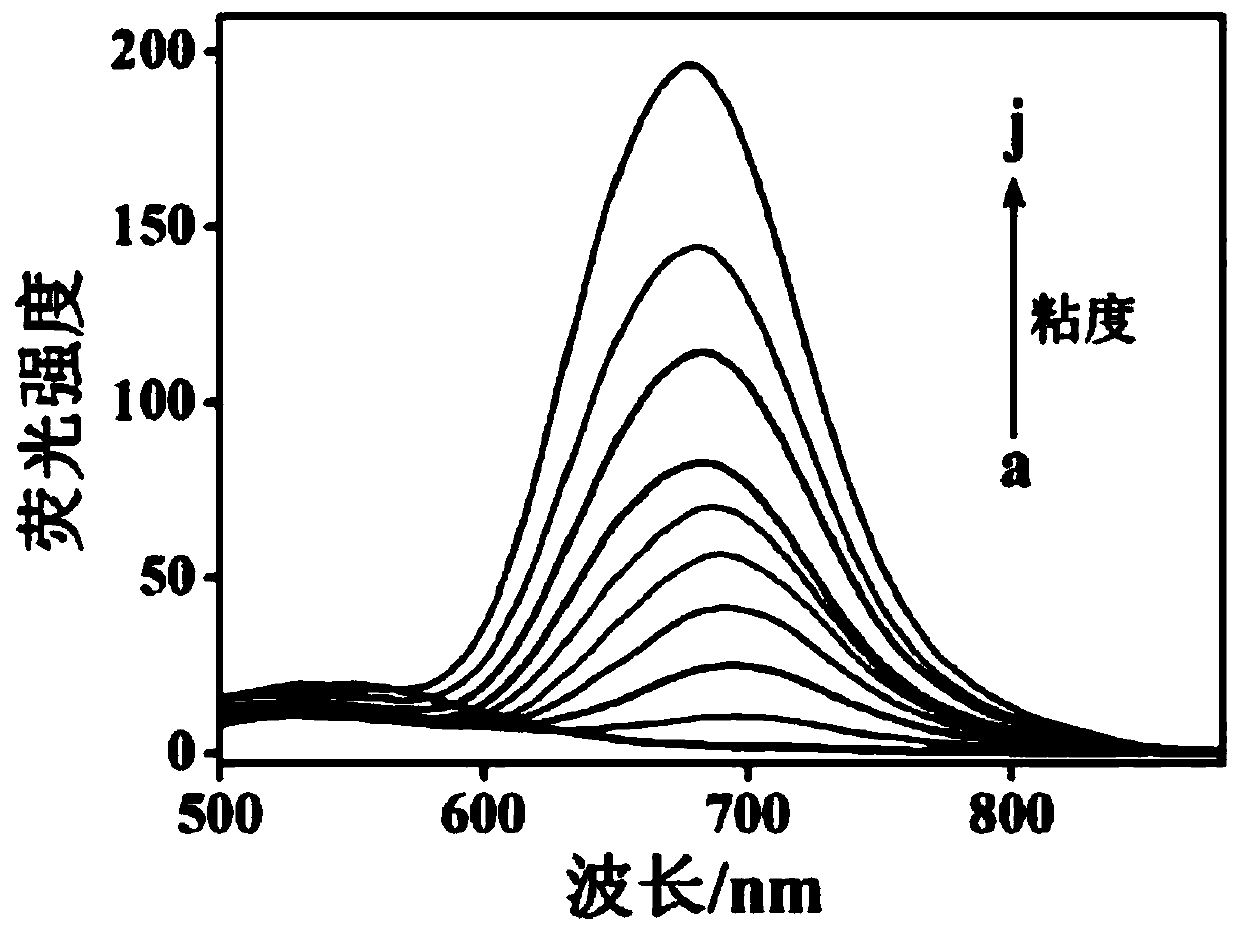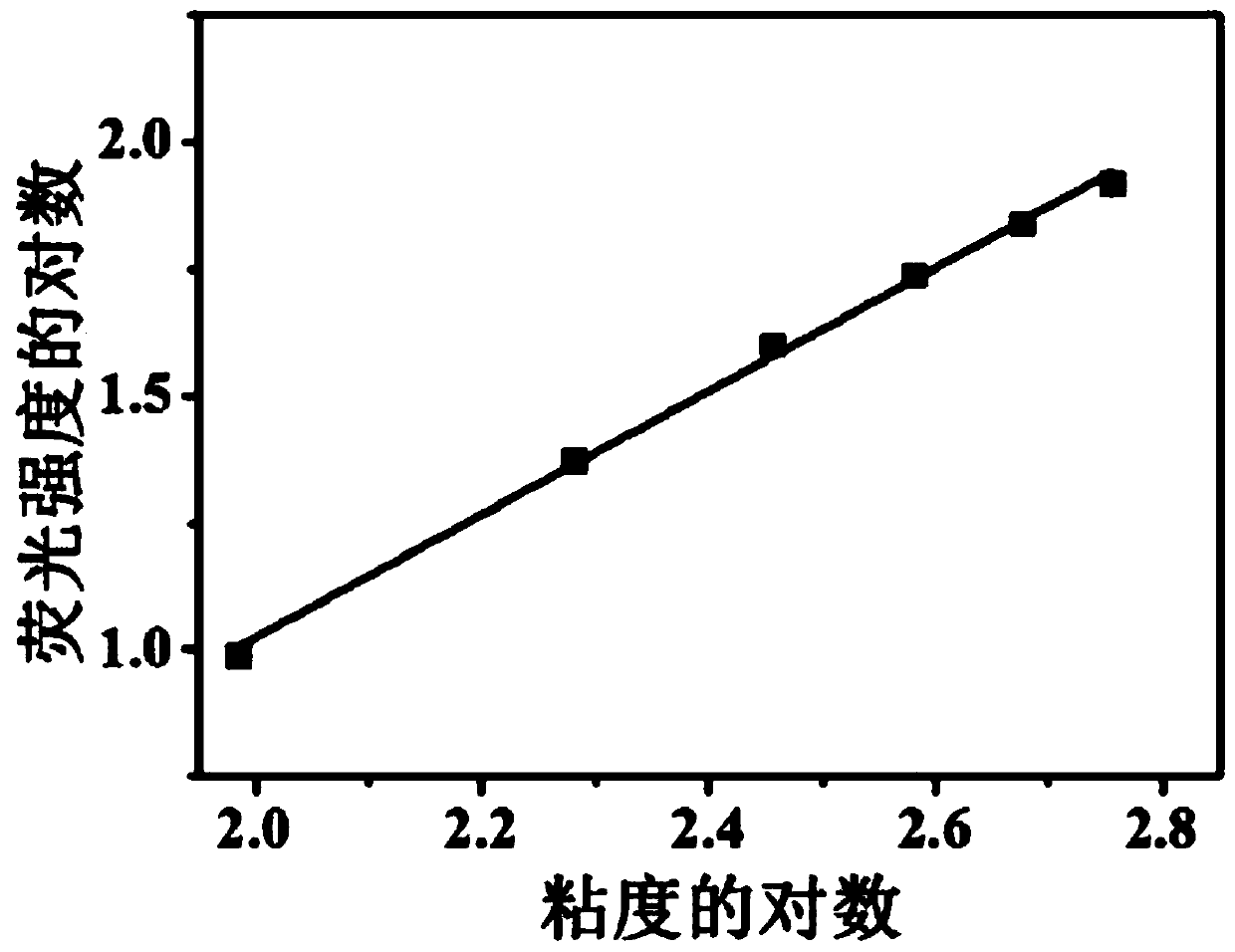Fluorescent probe for detecting viscosity and hydrogen peroxide and synthesis method and application of probe
A hydrogen peroxide and fluorescent molecular probe technology, applied in the field of chemical analysis and detection, can solve the problems of unfavorable biological sample detection, weak photobiological penetration ability, biological damage, unfavorable and other problems, and achieve high sensitivity, stable optical performance, and responsive fast effect
- Summary
- Abstract
- Description
- Claims
- Application Information
AI Technical Summary
Problems solved by technology
Method used
Image
Examples
Embodiment 1
[0038] Example 1: Synthesis of Fluorescent Molecular Probes
[0039]Dissolve the benzothiazole (0.1746g, 0.6490mmol) of compound 2 and the 4-methylpyridinium salt (0.200g, 0.6493mmol) substituted by compound 3 methylene benzene boronic acid in 30mL ethanol, add 0.5mL piper Pyridine, reflux at 80°C for 12h. After the reaction, the solvent was distilled off under reduced pressure, then dissolved in dichloromethane and methanol, purified by column chromatography, and finally 0.304 g of near-red solid powder was obtained (yield: 83.74%). The product structural formula is as follows:
[0040]
[0041] 1 H NMR(400MHz,DMSO):δ8.66(s,2H),8.54–8.39(m,2H),8.13–8.03(m,2H),7.94(s,4H),7.82(s,2H),7.44 (s,4H),7.23(s,3H),5.58(s,2H),2.22(s,3H).MS:m / z,Theoretical value:[M-Br] - 479.16; Calculated: 478.95.
Embodiment 2
[0042] Example 2: Fluorescent detection of probes for viscosity
[0043] The molecular probe prepared above was dissolved in a mixed solution of glycerol and dimethyl sulfoxide in different proportions to prepare a 10 μmol L -1 probe solution. Test its fluorescence spectrum, the results are as follows figure 2 shown. The logarithm of the logarithm of the fluorescence emission intensity of the solution at 680nm is plotted against the logarithm of the viscosity, and when the viscosity is in the range of 96.58cp to 568.88cp, there is a good linear relationship between the two ( image 3 ), can realize the quantitative detection of the viscosity in this range.
Embodiment 3
[0044] Embodiment 3: Fluorescent detection of probes to hydrogen peroxide
[0045] The molecular probe prepared above was dissolved in a phosphate buffered solution of water and dimethyl sulfoxide (H 2 O / DMSO=1 / 1, v / v, 10mM, pH 7.4), prepared to 10μmol L -1 probe solution. Add 2 mL of prepared 10 μmol L to a 3 mL cuvette -1 Probe solution of the present invention, and then add different concentrations of hydrogen peroxide to mix uniformly, test its fluorescence spectrum, the results are as follows Figure 5 shown. The fluorescence emission intensity of the solution at 590nm is plotted against the concentration of hydrogen peroxide, and the concentration of hydrogen peroxide is 0–25 μmol L -1 In the range, there is a good linear relationship between the two ( Image 6 ), the quantitative detection of hydrogen peroxide in this concentration range can be realized, and the solution changes from red to yellow, which is also suitable for naked eye detection. And this probe is ...
PUM
 Login to View More
Login to View More Abstract
Description
Claims
Application Information
 Login to View More
Login to View More - R&D
- Intellectual Property
- Life Sciences
- Materials
- Tech Scout
- Unparalleled Data Quality
- Higher Quality Content
- 60% Fewer Hallucinations
Browse by: Latest US Patents, China's latest patents, Technical Efficacy Thesaurus, Application Domain, Technology Topic, Popular Technical Reports.
© 2025 PatSnap. All rights reserved.Legal|Privacy policy|Modern Slavery Act Transparency Statement|Sitemap|About US| Contact US: help@patsnap.com



